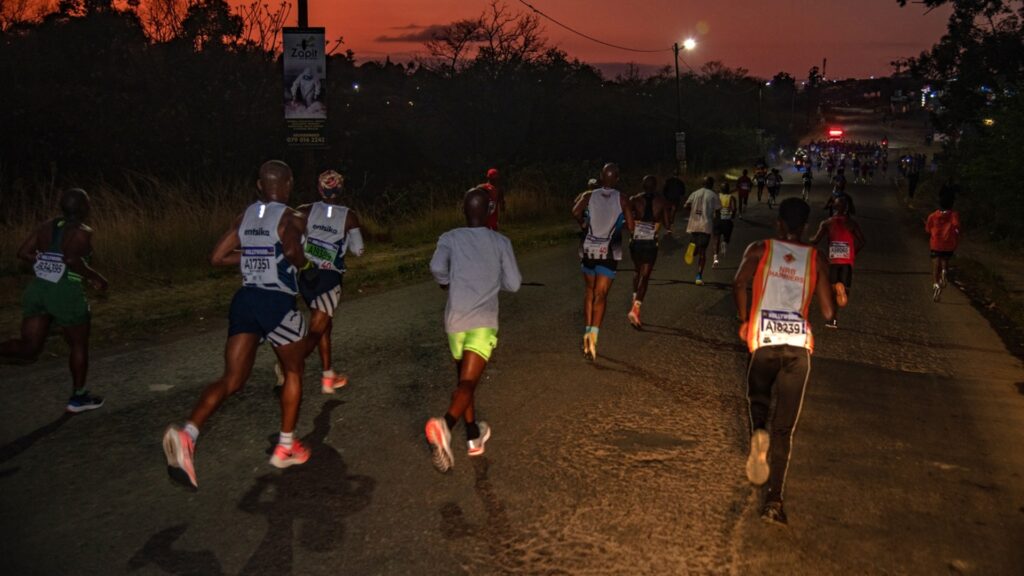Training for a major race like the Comrades Marathon involves numerous factors, one of which is the time of day when you train.
Many runners wonder whether training predominantly in the evenings will affect their performance on race day, especially since the Comrades Marathon starts early in the morning.
Let’s delve into this concern and provide some insights on how to manage your training schedule effectively.

Consistency Over Timing
The primary concern for many athletes, including Adam du Plooy, who train mostly in the evenings, is whether this will negatively impact their performance on race day, which starts early in the morning.
Coach Lindsey Parry addresses this by emphasizing that while it might feel slightly different to run in the morning if you’re used to evening workouts, it shouldn’t significantly impact your overall performance.
Train When You Feel Best
Ideally, you should train at a time when you feel your best. This ensures that your key workouts are done effectively, maximizing your training benefits. If you’re more energetic and perform better in the late afternoon or early evening, then that’s the best time for you to do your key workouts. Conversely, if you’re a morning person who feels great right out of bed, morning training sessions might be more beneficial for you.
Work Constraints and Adjustments
In Adam’s case, work commitments make it challenging to train in the mornings, necessitating evening workouts. Coach Parry notes that while this is not ideal for race simulation, it’s more important to focus on getting the workouts done consistently. Consistent training is crucial for building endurance and strength, which are vital for a race like the Comrades Marathon.

Psychological and Physiological Adaptation
On race day, early morning starts might feel a bit odd if you’ve done all your training in the evenings. However, this difference is more psychological than physiological. The excitement and adrenaline of race day typically help runners adjust to the early start time. To mitigate any potential discomfort, incorporating some morning runs closer to race day, as Adam plans to do in May, can help your body adapt to the earlier schedule.In conclusion, while training in the evenings is not a perfect match for an early morning race like the Comrades Marathon, it shouldn’t significantly hinder your performance. The key is to ensure that your training is consistent and that you’re completing your key workouts when you feel most capable. By doing some runs in the morning leading up to race day, you can also help your body adjust to the early start, ensuring you’re ready to perform your best when it counts.



Comments are closed.